-
 Bitcoin
Bitcoin $117,462.8204
-2.03% -
 Ethereum
Ethereum $3,061.1595
1.10% -
 XRP
XRP $2.9139
-2.19% -
 Tether USDt
Tether USDt $1.0002
0.02% -
 BNB
BNB $685.1357
-1.24% -
 Solana
Solana $161.3803
-2.11% -
 USDC
USDC $1.0002
0.04% -
 Dogecoin
Dogecoin $0.1948
-2.92% -
 TRON
TRON $0.2987
-0.89% -
 Cardano
Cardano $0.7330
-1.27% -
 Hyperliquid
Hyperliquid $47.7888
0.13% -
 Stellar
Stellar $0.4514
-2.93% -
 Sui
Sui $4.0169
2.74% -
 Chainlink
Chainlink $15.7088
-2.57% -
 Hedera
Hedera $0.2356
-3.33% -
 Bitcoin Cash
Bitcoin Cash $488.6656
-3.61% -
 Avalanche
Avalanche $21.2955
-1.47% -
 UNUS SED LEO
UNUS SED LEO $9.0415
0.42% -
 Shiba Inu
Shiba Inu $0.0...01332
-0.82% -
 Toncoin
Toncoin $3.0124
-0.62% -
 Litecoin
Litecoin $94.2175
-2.07% -
 Polkadot
Polkadot $4.0011
-0.61% -
 Monero
Monero $333.5714
-3.46% -
 Uniswap
Uniswap $9.1114
-1.56% -
 Dai
Dai $1.0000
0.02% -
 Ethena USDe
Ethena USDe $1.0005
0.00% -
 Bitget Token
Bitget Token $4.4951
1.87% -
 Pepe
Pepe $0.0...01242
0.47% -
 Aave
Aave $321.9943
0.51% -
 Bittensor
Bittensor $434.1984
5.13%
TRIX indicator for day trading crypto
The TRIX indicator helps crypto day traders spot momentum shifts and trend reversals by filtering market noise through triple exponential smoothing.
Jul 14, 2025 at 12:14 am
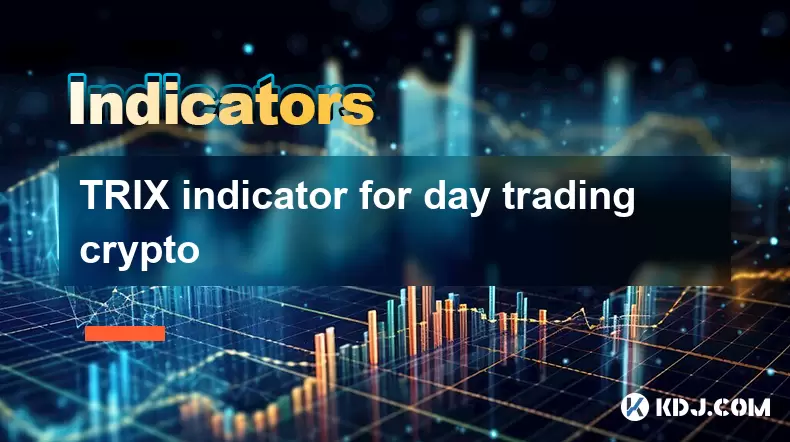
Understanding the TRIX Indicator in Cryptocurrency Trading
The TRIX (Triple Exponential Average) indicator is a momentum oscillator primarily used to identify oversold and overbought conditions, as well as potential trend reversals. Originally developed by Jack Hutson in the 1980s, it has found renewed relevance in crypto day trading due to its ability to filter out market noise and provide clearer signals. Unlike simple moving averages, TRIX applies triple exponential smoothing to price data, making it more responsive to short-term price movements while reducing lag.
In the volatile world of cryptocurrencies like Bitcoin, Ethereum, and altcoins, the TRIX indicator helps traders spot subtle shifts in momentum that may not be visible through traditional tools. This makes it particularly valuable for day traders who rely on quick entries and exits based on technical signals.
How to Calculate and Interpret TRIX Values
To effectively use TRIX in your crypto trading strategy, you must first understand how it's calculated. The process involves:
- First EMA: Compute the Exponential Moving Average (EMA) of closing prices over a set period (typically 14 or 15 periods).
- Second EMA: Take the EMA of the result from the first step.
- Third EMA: Apply another EMA to the second result.
- Rate of Change: Calculate the percentage change between today’s and yesterday’s triple-smoothed EMA.
This multi-step filtering ensures that only significant changes in momentum are highlighted. A positive TRIX value indicates upward momentum, while a negative value suggests downward pressure. Crossovers above or below the zero line often signal trend changes.
Setting Up TRIX on Crypto Trading Platforms
Most modern cryptocurrency exchanges and charting platforms such as TradingView, Binance, and Bybit support the TRIX indicator. Here’s how to set it up:
- Open your preferred platform and select a crypto pair (e.g., BTC/USDT).
- Click on the indicators or studies section.
- Search for “TRIX” and add it to the chart.
- Adjust the settings—most traders use a 14-period setting, but some prefer shorter intervals like 9 or 12 for increased sensitivity.
Some platforms allow customization of the signal line, which is typically a 9-period EMA of the TRIX values. Enabling this can help identify crossovers more clearly, which are crucial for generating trade signals.
Using TRIX for Entry and Exit Signals in Day Trading
Day traders in the crypto space can benefit significantly from the crossover strategy offered by TRIX. Here’s how it works:
- Buy Signal: When the TRIX line crosses above the signal line, especially after being negative, it may indicate an uptrend beginning.
- Sell Signal: Conversely, when TRIX crosses below the signal line after being positive, it could suggest a downtrend starting.
These signals are most reliable when confirmed with volume spikes or other complementary indicators like RSI or MACD. For instance, if TRIX generates a buy signal and RSI moves above 50, the strength of the bullish move increases.
Additionally, divergence analysis using TRIX can be powerful. If the price makes new highs but TRIX fails to confirm, it might hint at reversal potential.
Combining TRIX with Other Technical Tools
While TRIX is effective on its own, combining it with other tools enhances its accuracy in fast-moving crypto markets:
- Use moving average ribbons to confirm trend direction before acting on TRIX signals.
- Overlay volume profiles to ensure that price moves coincide with rising volume.
- Integrate support/resistance levels to avoid entering trades near strong zones that may reverse momentum.
For example, during a BTC rally, if TRIX shows a bullish crossover and the price is bouncing off a key support level, the probability of a successful long trade increases substantially.
Moreover, applying timeframe analysis can refine entry points. Traders often use a higher timeframe (like 1-hour) to determine trend direction and a lower one (like 5-minute or 15-minute) for precise entry.
Frequently Asked Questions
Q: Can TRIX be used for scalping in crypto markets?
A: Yes, TRIX can be adapted for scalping strategies by adjusting the period length to smaller values (e.g., 6 or 7). However, this increases sensitivity and may generate more false signals, so it should be used with filters like volume or volatility measures.
Q: How does TRIX compare to MACD in crypto trading?
A: Both are momentum indicators, but TRIX filters out more noise due to its triple smoothing mechanism. While MACD is more reactive to recent price changes, TRIX offers fewer but potentially more reliable signals, especially in choppy crypto markets.
Q: What timeframes work best with TRIX for day trading crypto?
A: The 15-minute and 5-minute charts are popular among day traders using TRIX. These timeframes balance responsiveness and clarity, allowing traders to catch intraday swings without getting overwhelmed by market noise.
Q: Is TRIX suitable for all types of cryptocurrencies?
A: TRIX performs best on highly liquid pairs such as BTC/USDT or ETH/USDT. In low-volume altcoin markets, the indicator may produce erratic readings due to insufficient data and erratic price action.
Disclaimer:info@kdj.com
The information provided is not trading advice. kdj.com does not assume any responsibility for any investments made based on the information provided in this article. Cryptocurrencies are highly volatile and it is highly recommended that you invest with caution after thorough research!
If you believe that the content used on this website infringes your copyright, please contact us immediately (info@kdj.com) and we will delete it promptly.
- Solana Memecoins Hit the Big Time: PUMP and Sonic Get Coinbase Listing Boost!
- 2025-07-16 06:50:12
- Core Foundation's Rev+: Fueling Ecosystem Growth Through Revenue Sharing
- 2025-07-16 06:30:17
- Ripple, California, and Collaboration: A New Era for Crypto?
- 2025-07-16 06:30:17
- Uniswap, Mary-Catherine Lader, and the DeFi Evolution: What's Next?
- 2025-07-16 07:10:12
- Roman Storm, DPRK Hackers, and Prosecutors: A Tangled Web
- 2025-07-16 06:50:12
- Penguin Pump: Riding the $PENGU Wave in the Wild World of Crypto
- 2025-07-16 07:15:12
Related knowledge
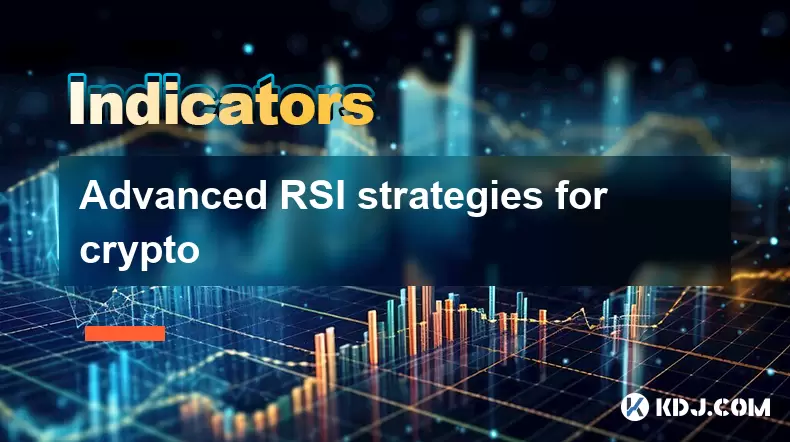
Advanced RSI strategies for crypto
Jul 13,2025 at 11:01am
Understanding the Basics of RSI in Cryptocurrency TradingThe Relative Strength Index (RSI) is a momentum oscillator used to measure the speed and chan...
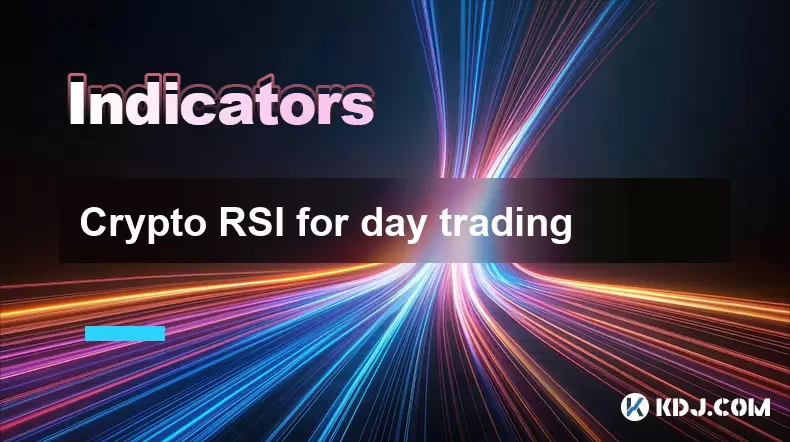
Crypto RSI for day trading
Jul 12,2025 at 11:14am
Understanding RSI in the Context of Cryptocurrency TradingThe Relative Strength Index (RSI) is a momentum oscillator used to measure the speed and cha...
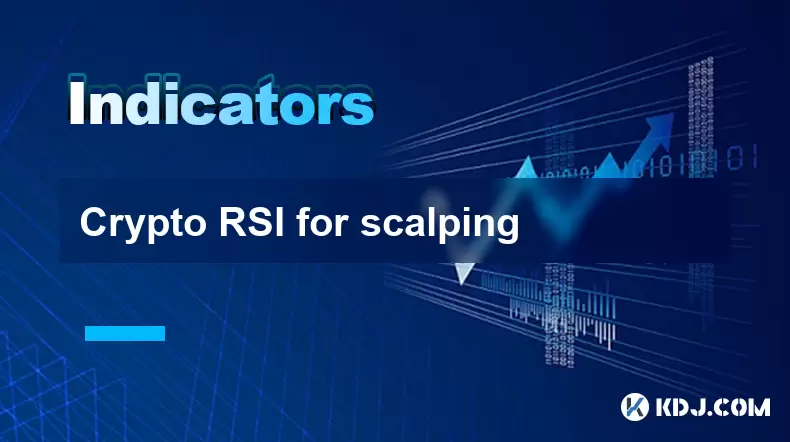
Crypto RSI for scalping
Jul 12,2025 at 11:00pm
Understanding RSI in the Context of Crypto TradingThe Relative Strength Index (RSI) is a momentum oscillator widely used by traders to measure the spe...
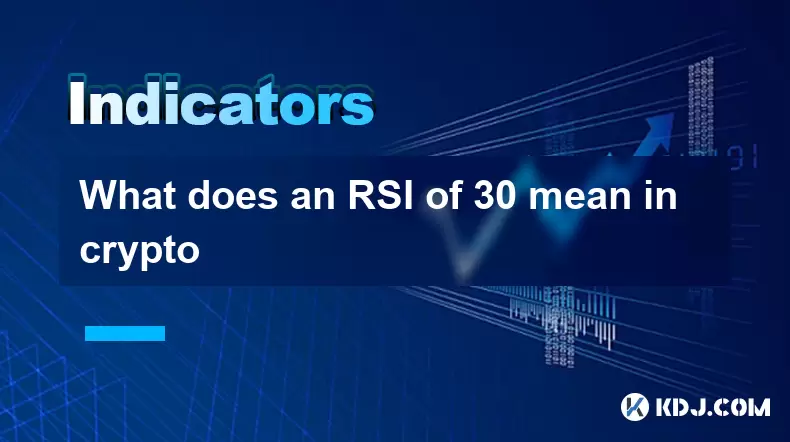
What does an RSI of 30 mean in crypto
Jul 15,2025 at 07:07pm
Understanding RSI in Cryptocurrency TradingRelative Strength Index (RSI) is a momentum oscillator widely used in cryptocurrency trading to measure the...
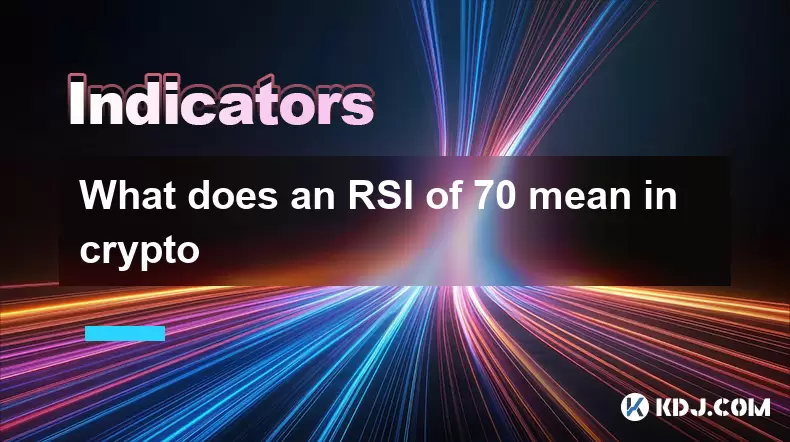
What does an RSI of 70 mean in crypto
Jul 13,2025 at 06:07pm
Understanding the RSI Indicator in Cryptocurrency TradingThe Relative Strength Index (RSI) is a widely used technical analysis tool that helps traders...
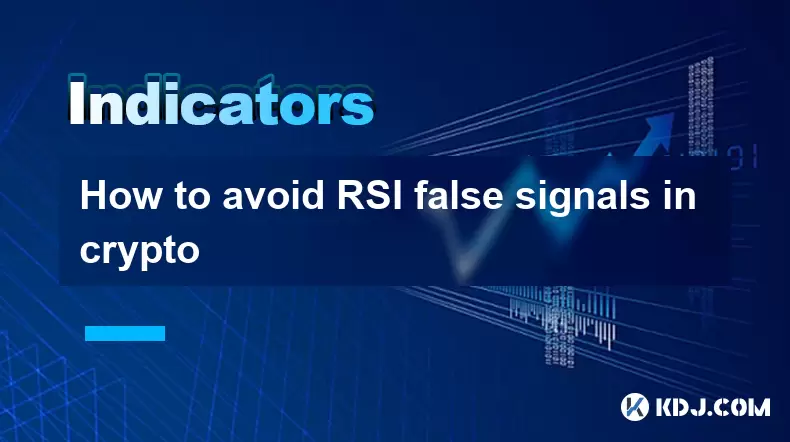
How to avoid RSI false signals in crypto
Jul 13,2025 at 06:21pm
Understanding RSI and Its Role in Crypto TradingThe Relative Strength Index (RSI) is a momentum oscillator used to measure the speed and change of pri...

Advanced RSI strategies for crypto
Jul 13,2025 at 11:01am
Understanding the Basics of RSI in Cryptocurrency TradingThe Relative Strength Index (RSI) is a momentum oscillator used to measure the speed and chan...

Crypto RSI for day trading
Jul 12,2025 at 11:14am
Understanding RSI in the Context of Cryptocurrency TradingThe Relative Strength Index (RSI) is a momentum oscillator used to measure the speed and cha...

Crypto RSI for scalping
Jul 12,2025 at 11:00pm
Understanding RSI in the Context of Crypto TradingThe Relative Strength Index (RSI) is a momentum oscillator widely used by traders to measure the spe...

What does an RSI of 30 mean in crypto
Jul 15,2025 at 07:07pm
Understanding RSI in Cryptocurrency TradingRelative Strength Index (RSI) is a momentum oscillator widely used in cryptocurrency trading to measure the...

What does an RSI of 70 mean in crypto
Jul 13,2025 at 06:07pm
Understanding the RSI Indicator in Cryptocurrency TradingThe Relative Strength Index (RSI) is a widely used technical analysis tool that helps traders...

How to avoid RSI false signals in crypto
Jul 13,2025 at 06:21pm
Understanding RSI and Its Role in Crypto TradingThe Relative Strength Index (RSI) is a momentum oscillator used to measure the speed and change of pri...
See all articles

























































































